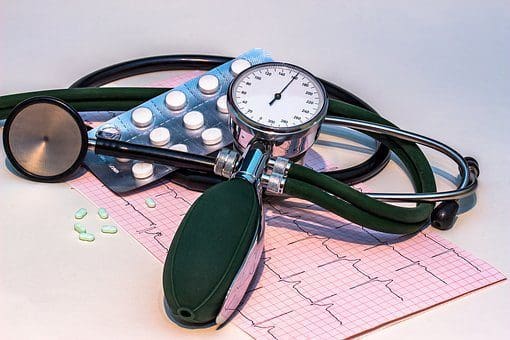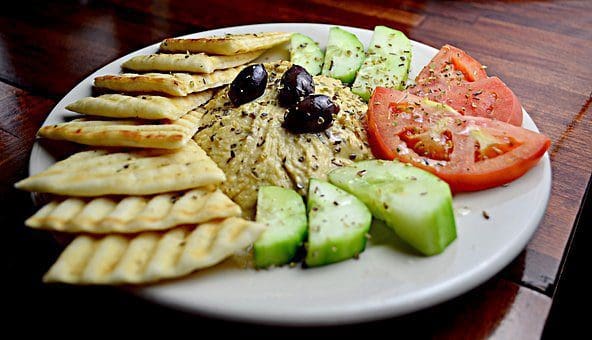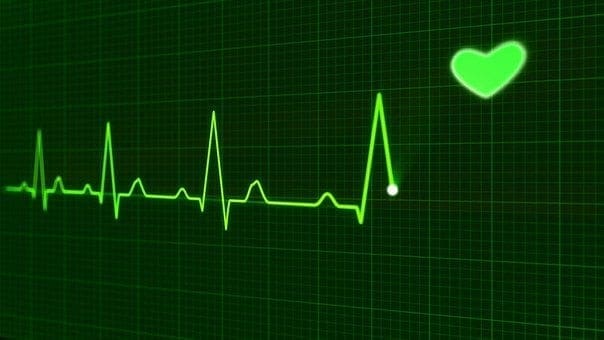Doctor of Chiropractic, Dr. Alexander Jimenez investigates the mediterranean diet, and what it can do for people taking statins for heart attacks and strokes.
Q: How Does The Mediterranean Diet Stack Up Against Statins In Preventing Heart Attacks & Strokes?
A: Research suggests that the Mediterranean diet and statins can be effective in helping to lower the risk of potentially fatal complications of heart disease. But there has been no published scientific research in which a large number of people were given either statins or a Mediterranean-style diet at random and then followed carefully to see what became of their heart health.

As Rosemary Stanton, nutritionist and visiting fellow at the School of Medicinal Sciences, University of New South Wales, explains in an article posted by The Conversation, “Such a trial is unlikely to occur, as withholding medication from people at risk of heart attack or stroke would be regarded as unethical.”
But there is evidence that both approaches are helpful and that the optimal choice, at least for those at high risk of cardiovascular disease, would be a combination of diet and statins. Research also suggests that, for people at lower risk, lifestyle measures like the Mediterranean diet could be sufficient.
Traditionally, the Mediterranean diet includes lots of fruit, nuts, vegetables, cereals and oil from olives; a moderate intake of fish and poultry; a low intake of dairy products, red meat, processed meats and sweets; and — taken with meals — wine in moderation. (Researchers tested two versions, one with lots of olive oil and the other with lots of oil from nuts.)

“I don’t view these things as either-or,” said Dr. Meir Stampfer, a professor of epidemiology and nutrition at the Harvard T.H. Chan School of Public Health. “My advice is to start with the Mediterranean diet because it’s good for you in multiple ways — lowering risk of cognitive decline, reduction in some cancers, lower risk of diabetes — that go beyond what statins do.”
If Cholesterol Numbers Remain High Despite A Healthy Diet, Statins Or Other Medical Treatments Can Be Added
In 2009, Circulation: Cardiovascular Quality and Outcomes, a journal of the American Heart Association, reported research that showed statin therapy resulting in a 44 percent reduction in heart disease-related problems including heart attacks, strokes and deaths. (The study can be downloaded at bit.ly/2lX1tuF.)
In 2013, a large and rigorous study published by The New England Journal of Medicine found that switching to a Mediterranean diet prevented about 30 percent of heart attacks, strokes and deaths from heart disease in people at high risk. That study, which looked at two versions of the diet, can be found at bit.ly/2np3VY2.
Statin takers often wrongly think they don’t have to worry about diet and exercise.
“Quantitatively, you get more mileage from optimal exercise and diet than statins, so it’s not one or the other,” Stampfer said. “Everybody needs the diet and exercise, and some people, despite that, will still need statins. It’s not a failure; it’s not a character flaw — if you need it, you need it.”
The bottom line is that the Mediterranean diet helps even if one is taking statins and, along with other potential benefits, might help avoid the need for statins altogether.
Celia Storey added information to this report.
Professional Scope of Practice *
The information on "Mediterranean Diet: Statins & Stroke Prevention" is not intended to replace a one-on-one relationship with a qualified health care professional or licensed physician and is not medical advice. We encourage you to make healthcare decisions based on your research and partnership with a qualified healthcare professional.
Blog Information & Scope Discussions
Welcome to the wellness blog of El Paso Back Clinic, where Dr. Alex Jimenez, DC, FNP-C, a board-certified Family Practice Nurse Practitioner (FNP-C) and Chiropractor (DC), presents insights on how our team is dedicated to holistic healing and personalized care. Our practice aligns with evidence-based treatment protocols inspired by integrative medicine principles, similar to those found on dralexjimenez.com, focusing on restoring health naturally for patients of all ages.
Our areas of chiropractic practice include Wellness & Nutrition, Chronic Pain, Personal Injury, Auto Accident Care, Work Injuries, Back Injury, Low Back Pain, Neck Pain, Migraine Headaches, Sports Injuries, Severe Sciatica, Scoliosis, Complex Herniated Discs, Fibromyalgia, Chronic Pain, Complex Injuries, Stress Management, Functional Medicine Treatments, and in-scope care protocols.
Our information scope is limited to chiropractic, musculoskeletal, physical medicine, wellness, contributing etiological viscerosomatic disturbances within clinical presentations, associated somato-visceral reflex clinical dynamics, subluxation complexes, sensitive health issues, and functional medicine articles, topics, and discussions.
We provide and present clinical collaboration with specialists from various disciplines. Each specialist is governed by their professional scope of practice and their jurisdiction of licensure. We use functional health & wellness protocols to treat and support care for the injuries or disorders of the musculoskeletal system.
Our videos, posts, topics, subjects, and insights cover clinical matters, issues, and topics that relate to and directly or indirectly support our clinical scope of practice.*
Our office has reasonably attempted to provide supportive citations and has identified the relevant research studies or studies supporting our posts. We provide copies of supporting research studies available to regulatory boards and the public upon request.
We understand that we cover matters that require an additional explanation of how they may assist in a particular care plan or treatment protocol; therefore, to discuss the subject matter above further, please feel free to ask Dr. Alex Jimenez, DC, APRN, FNP-BC, or contact us at 915-850-0900.
We are here to help you and your family.
Blessings
Dr. Alex Jimenez, DC, MSACP, APRN, FNP-BC*, CCST, IFMCP, CFMP, ATN
email: coach@elpasofunctionalmedicine.com
Licensed as a Doctor of Chiropractic (DC) in Texas & New Mexico*
Texas DC License # TX5807
New Mexico DC License # NM-DC2182
Licensed as a Registered Nurse (RN*) in Texas & Multistate
Texas RN License # 1191402
ANCC FNP-BC: Board Certified Nurse Practitioner*
Compact Status: Multi-State License: Authorized to Practice in 40 States*
Graduate with Honors: ICHS: MSN-FNP (Family Nurse Practitioner Program)
Degree Granted. Master's in Family Practice MSN Diploma (Cum Laude)
Dr. Alex Jimenez, DC, APRN, FNP-BC*, CFMP, IFMCP, ATN, CCST
My Digital Business Card








